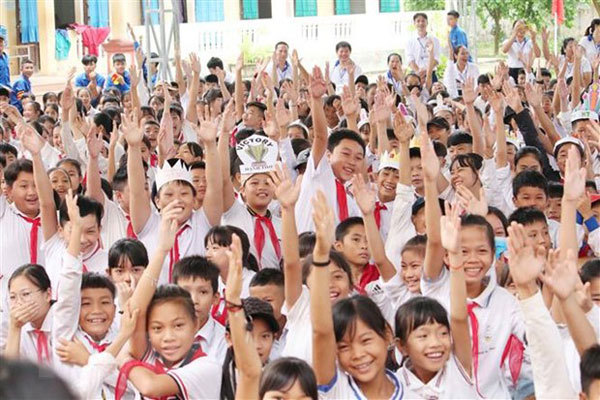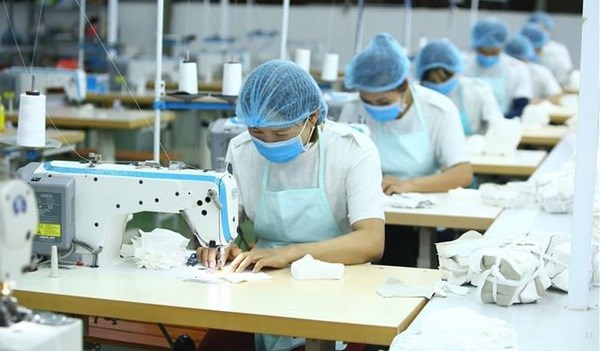 |
| Gender education among children is key to improving gender equality. —VNA/VNS Photo Nguyen Oanh |
Under a new decision by Prime Minister Pham Minh Chinh, the village code and convention at every grassroots level in the country will include principles like gender equality in society and family, as well as no gender-based discrimination.
Gender issues must be integrated into law building and enforcement.
The amendment and supplementation to community ethical codes are expected to promote and ensure gender equality, for example raising public awareness on gender equality and gender-based violence, preventing and fighting family violence, as well as raising the status of women and girls in society and the family.
Changes to community ethical codes are expected to help increase gender equality in politics, economy, labour, education, science and technology, healthcare, culture and sports.
It is expected that girls and women will be given more chances to participate in social activities.
Amended community ethical codes in Vietnam helped raise public awareness on cultural and civilised lifestyles during weddings, funerals and festivals, thus changing public behaviour, abandoning outdated procedures and curbing child marriage.
Under the Prime Minister’s decision on the gender equality communication programme issued on October 23, 2021, 95 per cent of village codes and conventions in Vietnam will no longer contain gender-based discrimination by 2025.
By 2030, gender equality will be included in all village codes and conventions that are developed and implemented by the community from the grassroots levels, like villages, hamlets or residential groups.
Under the programme, in the next four years, all ministries, agencies and localities will have an annual plan on a month-long campaign to promote gender equality and respond to gender-based violence.
They are also required to apply technology and digital platforms, as well as diversify communication on the issues.
The Prime Minister also urges to further engage different stakeholders in communication work, mobilising resources and means.
The participation and response of agencies, organisations, businesses and people, especially leaders, managers, heads of agencies, and people with great prestige and influence in society could help generate positive results.
Gender equality education in families, schools and communities should be expanded and promoted.
The Prime Minister suggested developing and applying a set of indicators on gender communication.
He also asked for capacity building for communication officers, reporters, editors, reporters, and media collaborators at all levels.
It is also necessary to strengthen communication on laws, policies and achievements on gender equality of Vietnam, to fight and oppose false information about gender equality and policies of the Party and State of Vietnam, to strengthen the inspection and supervision of promoting and dissemination of the law on gender equality.
Source: Vietnam News

First overall report on gender equality situation in Vietnam released
Country Gender Equality Profile Vietnam 2021 (CGEP), the first comprehensive report on the gender equality situation in Vietnam, was released on October 26.